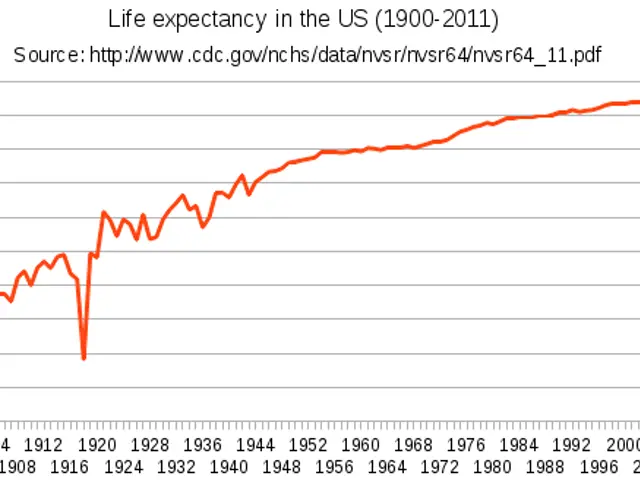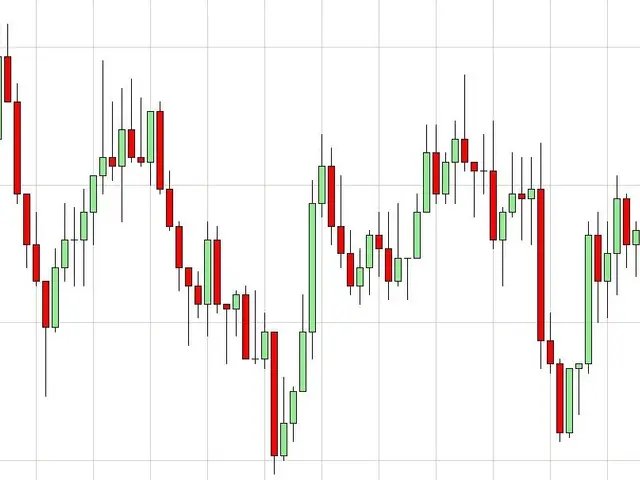Wall Street Takes a Pause Amid Uncertain US-China Trade Relations
Artificial Intelligence stocks surge following Trump's visit to Saudi Arabia
In the heart of the week, Wall Street took a step back following a stretch of gains. The Dow Jones Index dipped 0.2%, closing at 42,051 points. Close behind, the S&P-500 nudged up 0.1%, and the Nasdaq Composite moved 0.7% higher.
The US-China trade battle still grips traders, even with signs of softening since the weekend. Yet, concrete talks on future tariffs are yet to commence, creating a sense of urgency with the deadline of 90 days remaining before initial high tariffs return.
Individual stocks have caught investors' attention, including Cisco, whose third-quarter results were due post-market. Analysts at Vital Knowledge highlighted optimistic sentiment for Cisco, citing indications of robust demand in data center and enterprise technology, strong capital returns, and a reasonable valuation. However, they warned of possible margin impact from tariffs. Consequently, Cisco's stock closed 0.8% lower before the results.
On the other hand, AI-related stocks have been in demand following Saudi Arabia's announcement of $20 billion US investments in AI data centers and energy infrastructure. Nvidia (+4.2%) and AMD (+4.7%) gained from their partnership with Saudi Arabia's Humain, a subsidiary of the sovereign wealth fund. Saudi Arabia's investment also boosted AMD, which unveiled additional share buybacks. Super Micro Computer surged 15.7%, thanks to its partnership with Saudi Arabia's Datavolt.
Apple's stock showed minor weakness as Foxconn reported a sharp boost in first-quarter profits but lowered its revenue guidance due to tariff risks. Known for assembling Apple's smartphones, Foxconn benefited from customers rushing to ship products to the US to stock up on inventory ahead of potential US import tariffs. Alongside Foxconn, Foxconn plays a crucial role in building AI servers for US tech giants like Amazon and Nvidia.
Boeing (+0.7%) and GE Aerospace (+0.7%) saw a lift from an order by Qatar. Qatar Airways confirmed orders for aircraft and engines from both manufacturers, worth approximately $96 billion, according to the White House.
American Eagle Outfitters reported disappointing preliminary first-quarter results and adjusted its 2025 outlook downward, causing the stock to drop 6.5%.
Oil prices moderated after recent strong gains. Brent and WTI futures decreased by up to 1.3% as US oil inventories unexpectedly rose. Previously, oil had spiked due to easing tensions between the US and China. "Any deterioration in market sentiment towards trade talks could undermine the recent rally," said Investec analyst Callum Macpherson.
Meanwhile, the gold price took a sharp dive. A single troy ounce fell 2.1% to $3,181. Reduced demand for "safe havens" was the presumed reason. On the bond market, yields dropped. The yield on 10-year notes increased by 4 basis points to 4.54 percent. According to Mark Capleton of Bank of America, yields are expected to rise further as foreign investors become increasingly reluctant to fund the US deficit, leading to lower demand for US bonds and subsequently higher yields.
Read more about today's stock market here.
Source: ntv.de, ino/rts
- Stock prices
- Stock trading
- Dow Jones
- Wall Street
Insight:The current situation of the US-China trade conflict in mid-May 2025 is marked by substantial de-escalation but lingering uncertainty. On May 13, 2025, the US and China agreed to significantly reduce tariffs on each other's goods for a 90-day period. This tariff suspension while providing positive short-term sentiment for markets, does not resolve deeper structural issues and encourages countries to pick sides in the ongoing global trade equilibrium, with trade uncertainty continuing to pose risks[1]. However, key players in the technology and semiconductor industry, such as Nvidia, AMD, Apple, and Cisco, face ongoing headwinds due to their dependency on global supply chains and the Chinese market, despite experiencing temporary relief from near-term cost pressures and supply chain disruptions[1][2][3]. Investors must exercise caution in assuming complete or enduring trade peace, as structural concerns beyond tariffs persist and could potentially re-escalate tensions.
The EC countries might consider employing a tactical employment policy to boost their industries in the wake of uncertain US-China trade relations, as some companies like Cisco might face margin impacts from tariffs. On the other hand, stocks related to technology and semiconductors, such as Nvidia and AMD, may attract foreign investments due to significant finance influxes, like Saudi Arabia's $20 billion investment in AI data centers and energy infrastructure.




